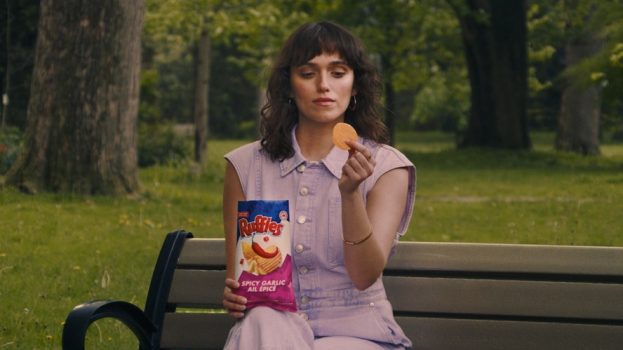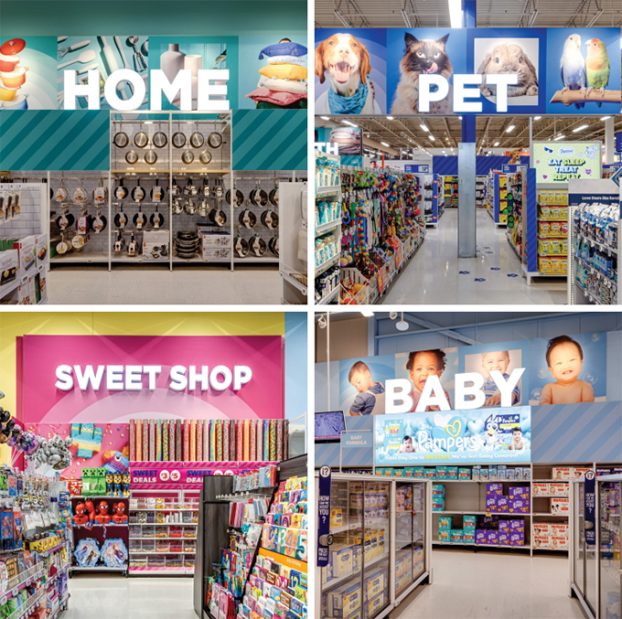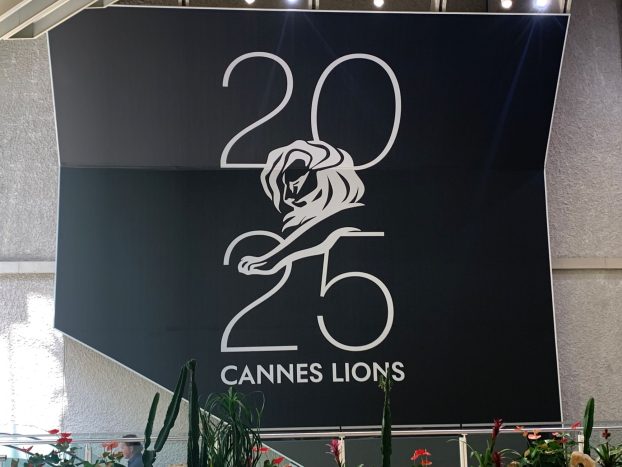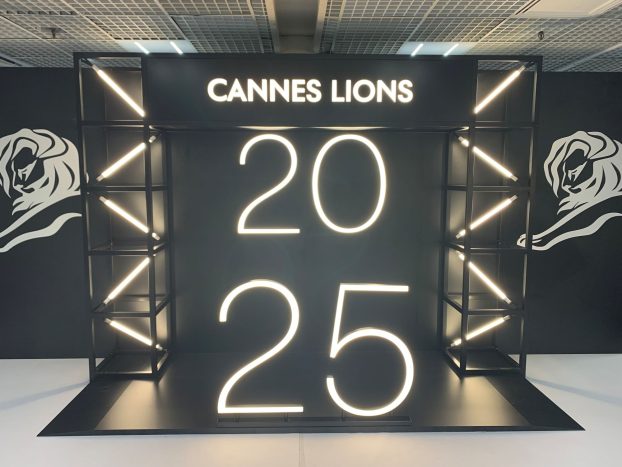It’s hard for fashion retailers to be confident these days, but Harry Rosen seems to be following its own advice: letting a new look help you feel confident enough to do your best work.
A campaign introducing the menswear retailer’s new brand positioning, “Set the Tone,” focuses on the idea that when people dress with confidence, they feel their best, enabling them to give back and be the best version of themselves for their family, their romantic relationships, their communities and their profession.
This is captured in a 30-second spot featuring Canadian actor Emmanuel Kabongo. Instead of the Bay Street business suits most Canadians associate with Harry Rosen, Kabongo is clad in more casual fare, like sneakers, a hoodie and jacket. That accelerates a focus Harry Rosen began in 2018 with its first TV ads, reflecting changes in mens style and what constitutes “business wear” these days. Harry Rosen has experienced triple digit sales increases year-over-year for the year-to-date when it comes to its casual wear, a trend that was accelerated as more individuals have been working from home and going out less due to the pandemic.
Harry Rosen also has a new visual identity, refreshing its typography to reflect a premium brand that still had an edge. The approach to all of its campaign photography has also changed to be centred on a role model – a person who does good, inspires others and has confidence. Overall, Harry is looking to still reach its 30- to 40-year-old traditional target, but also recent post-secondary graduates who want to elevate their appearance as they get ready to enter the professional working world.
Harry Rosen worked with Zulu Alpha Kilo on the campaign, the agency’s first work with the retailer after winning the account in January.
The pandemic has hobbled Canadian clothing and accessories’ businesses, with sales down a staggering 36.1% year-over-year for the most recent quarter tracked by Statistics Canada. While Harry Rosen has been in a solid enough position to avoid the bankruptcies that have befallen numerous other Canadian fashion retailers, the pandemic is still presenting some challenges, especially with uncertainty about the severity of a second wave.
“When you look at luxury menswear, a lot of our customers would like to come in and like to try clothing on – particularly when it comes to higher ticket items,” says Trinh Tham, CMO at Harry Rosen. “That lack of traffic – all the physical distancing requirements and capacity requirements, wearing a mask – has really impacted people’s desire to go out to a retail setting.” It is also creating a great deal of uncertainty around what kind of traffic Harry Rosen can plan for, as it seems to rise and fall based on case numbers and announcements from public health officials about new “phases” of reopening.
However, Tham says these challenges have had a “positive” impact on the brand. Harry Rosen began a digital business transformation path “well before the pandemic” – namely, when Tham joined Harry Rosen last November – and it meeting the challenges of the retail industry has meant strengthening some “healthy behaviours.”
“It’s actually forced us to kind of go to marketing 101: what is our objective here? How can we best serve our customers, and really focus on the customers?’” Tham says. That simpler perspective has also kept the brand’s purpose more front of mind, especially when developing its new positioning – Harry Rosen doesn’t just sell clothes, it helps men feel confident enough to be their best.
Tham also says Harry Rosen “doubled down” in a few key areas as part of its digital transformation, like its ecommerce platform, technology that helps digitize the customer journey and its CRM, putting the focus on the customer’s digital experience. Online sales may still not represent the majority of a fashion retailer’s business, but it is less volatile, and an option accessible to consumers no matter what second waves of the pandemic may bring.
Tham adds that the brand is also addressing uncertainty from a marketing perspective, letting consumers know it can be trusted to support and serve them.
Harry Rosen has also pivoted from its typical, traditional marketing tactics – running seasonal campaigns that relied heavily on print magazines – to a more “flexible and agile model” that will see it run several mini campaigns across different platforms, Tham says.
“That allows us to be in market much more frequently with relevant topics where we can pivot if we need to,” she says
Cairns Oneill handled the media buy for the campaign, which includes a TV spot running nationally with a focus on sports, as well as OOH, online videos, email and display ads.























